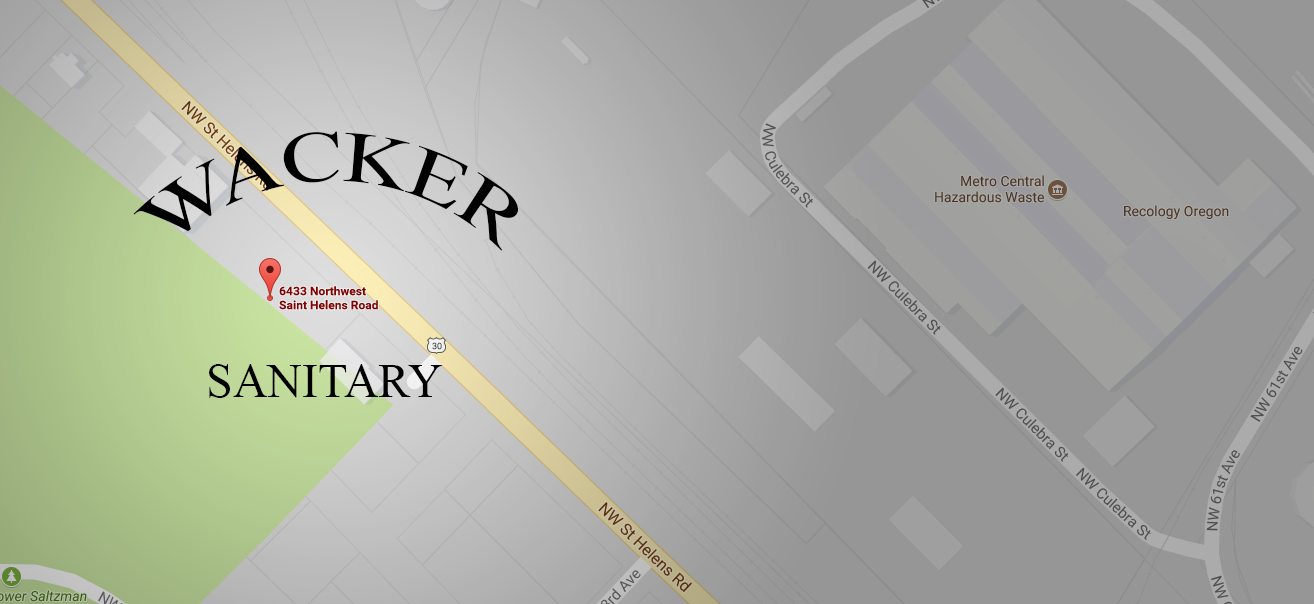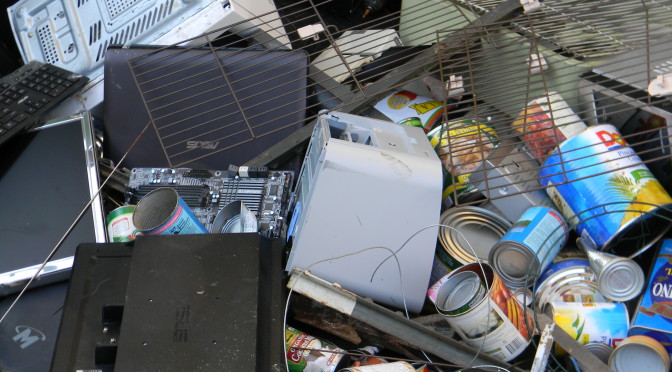
You can find us at:
3055 NW Yeon #80 Portland Oregon 97210
Monday – Friday, 9:00 AM. – 3:00 PM
503.658.3347
Wacker_sanitary@yahoo.com


3055 NW Yeon #80 Portland Oregon 97210
Monday – Friday, 9:00 AM. – 3:00 PM
503.658.3347
Wacker_sanitary@yahoo.com
Dump Truck Driver for Wacker Sanitary
As an established family owned and run company we value and prize skills, safety and loyalty.
So if you looking for opportunities, good wages and good close nit working environment, Wacker Sanitary is the company for you! Apply for the truck driver position with the Wacker Sanitary, a family owned company.
Good morning all we are off to a chilly day. But not too bad!
Make sure you put out your recyclables.
Blue for everyday recycling, paper, plastic etc…
and Green for your yard debris.
Glass in a separate container.
You all have a great day.
Dave, Sherry and Jaimy Wacker
We hope you are all keeping warm as the weather is turning colder.
And we see all those leaves on the ground. They are compostable but if you want to move the out entirely put them in your yard debris bin.
Picked up weekly. We will help you keep your yard in order through the seasons.
Use your brown bin for your waste and non recyclables.
We have larger sized bin call us or contact us if you need one.
Anything that you are unable to recycle or add to your compost can be put in this bin. For large items such as mattresses or sofa please contact us and will let you know if an extra charge applies.
Don’t forget your pet waste. It can be an health hazard and can pollute our water streams. To protect yourself and our collectors follow these tips:
Dog waste
Cat waste
The blue bins are for your recyclables.
Motor Oil: Recycle in a see-through, unbreakable container, (no larger than two gallons),with a screw top lid.
Household hazardous waste is accepted by Metro at no charge. Please call 503-234-3000 for information.
Food waste and yard debris cart information and instructions
Do not put the following items in the green bin or compost pail:
find out more about gardening and composting.
Get ready to rake some leaves. Be sure to put everything that do not wish to compost in the yard debris bin.
Do not have one? Call us and we’ll get you one!
Remember Leaves are great for composting they will naturally break down over the year and be ready for your soil when it is time to plant again.
Make sure the rest of the debris is regular sized, contents must fall freely from the roll cart and the weight should not exceed 135 lbs.
Compost Collection
Compost carts are serviced weekly. One green 64-gallon roll cart is included in your regular garbage service. Additional costs incurred for extra cans, bags or bundles.
On Pickup Day
Place materials at the curb by 6:00 a.m. on your pickup day.
Place materials within three feet of the curb.
Place the container with the lid opening facing towards the street.
Do not use plastic bags, yellow recycling bins, plastic liners or containers not labeled for yard debris.
When using Kraft paper yard debris bags, try to avoid putting wet debris at the bottom of bag; keep bags in dry location until pickup day to prevent bottom from falling out.
Include all food waste and plant trimmings.
Contents should not include garbage, rocks, sods, dirt, ashes, or animal waste.
Tie bundles with string or twine (prunings are limited to 4″ in diameter and 36″ in length).
Composting is a natural process where organic materials are recycled into a rich soil known as compost.
Any organic material will decompose.
You can take advantage of composting your waste if you have a garden or enjoy gardening.
when you compost your organic scraps and yard waste you follow but accelerate the same natural process of With compost you return nutrients back into the soil and create a rich fertile healty ground for plants and vegetables.
There are various types composting:
Backyard composting — A balance of dry materials, such as fallen leaves, straw, light twigs. And fresh materials, like grass clipping. ligth trim ends and kitchen scraps (no meat).
Layer them and you have your very own compost pile.
Worm composting (vermicomposting) — The Process of composting using various worms, most commonly red wigglers, white worms, and other earthworms is also good if you have a smaller areas and/or have an abundance of food scraps.
Grasscycling: You grasscycle when you have grass clippings and don’t want to use them in a compost pile. You can leave them on the lawn to decompose.
Some links to help you in your gardening
The Dirtbag on KBOO great gardening podcast
Gardening in the Pacific Northwest. OSU Gardening information

Trash, plastics, used and dirty mattresses, busted home appliances and furniture
Hazardous chemicals like pesticides, oils and antifrezee.
Just some of the things illegal dumpers leave on public lands, sidewalks, in park, abandoned lots and where ever they find it convenient.<br><br/>Illegal dumps can become potentially dangerous areas. Hazardous chemicals like antifreeze can hurt or kill your pets. Broken furniture or appliances could injure children playing nearby.
Contact Metro’s RID Patrol at 503-234-3000 or report illegal dumping to help stop this happening in your neighborhood.